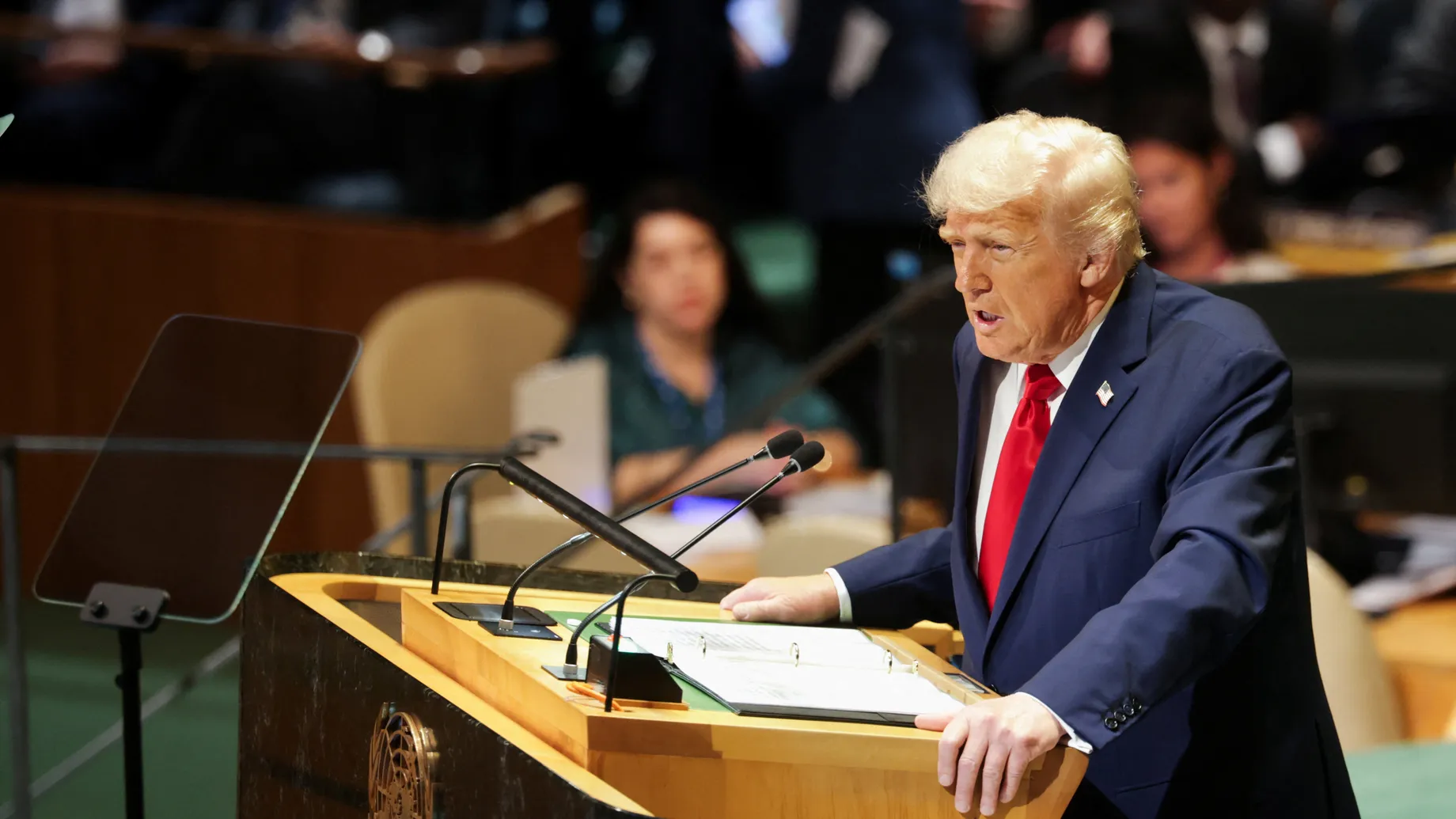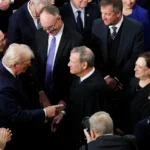According to Der Spiegel, President Donald Trump addressed the United Nations General Debate in New York for the first time in his current term—and turned the rostrum into a venue for sharp criticism. His speech blended accusations against the United Nations, calls for Europe to “really step up,” hard lines on Israel and Gaza, promises of pressure on Russia over the war in Ukraine, and his familiar skepticism toward climate policy.
“The UN has enormous potential—but isn’t using it”
Trump unleashed a barrage of reproaches at the UN, arguing that the organization not only fails to solve problems but “creates new ones.” The President claimed that during the times he “ended wars and negotiated with the leaders of those countries,” the UN offered neither initiative nor help:
“And not once did I receive a phone call from the United Nations offering to help me close the deal.”
Expanding on the point, Trump said:
“The UN has enormous potential. I’ve always said it. It has enormous potential. But for the most part it doesn’t even come close to living up to that potential, at least not at the moment.”
As an example of “misguided practice,” he pointed to migration:
“The UN supports people who enter the U.S. illegally, and then we have to remove them. The UN also provides illegal immigrants with food, shelter, transportation, and debit cards. Can you believe that?”
As Der Spiegel notes, in reality the UN Refugee Agency (UNHCR), in cooperation with U.S. authorities, provides humanitarian assistance to asylum seekers—standards of protection laid down in international law.
Technical hiccups and icy irony
The speech opened with a minor fiasco: the teleprompter malfunctioned. Trump reacted with a trademark smile and barbed aside:
“I can only say: whoever is operating this teleprompter is in big trouble.”
Later he complained that an escalator in the building wasn’t working properly. These asides set the overall tone—a mix of irritation and ostentatious intransigence toward “big bureaucracy.”
Israel–Gaza: “This has to succeed”
Turning to the Israel–Hamas war in Gaza, Trump said he was personally pushing for a cease-fire:
“This has to succeed.”
He sharply criticized countries announcing plans to recognize Palestine as a state, calling such moves “fuel on the fire”:
“The reward for the atrocities of the Hamas terrorists would be too great. This would be a reward for these terrible atrocities, including October 7.”
He also urged Hamas to release Israeli hostages.
Russia–Ukraine: tariffs as leverage
On the war in Ukraine, Trump sketched the idea of a deal with Moscow to end the fighting. If the Kremlin refuses, Washington, he said, is prepared to turn to economic coercion:
“[The United States is] ready to impose a series of drastic tariffs that, I believe, would end the bloodshed very quickly.”
A call to allies followed: European nations, in Trump’s view, should mirror the U.S. measures “exactly” and “stop buying oil and gas from Russia.” According to Der Spiegel, the message is plain—Europe must “engage more forcefully,” synchronize economic pressure, and shed energy dependence that erodes the sanctions front.
A “poisoned compliment” for Germany
Germany featured more than any other European country in the address. Trump criticized Berlin’s migration policy and, especially, its pivot to green energy under the previous coalition, taking direct aim at the Greens. His wording was unsparing:
“Germany was led down a very sick path—both in immigration policy and in energy policy. They bet on green power and went bankrupt. And with the new leadership they went back to their old habits—fossil fuels and nuclear power. And that’s a good thing.”
“I give Germany great praise for that.”
As Der Spiegel points out, Foreign Minister Johann Wadephul received the “praise” without visible reaction. The article stresses that Germany currently has no official plans to return to nuclear energy, while Chancellor Friedrich Merz has only floated a slower pace for expanding renewables. Within the black–red government, there are indeed voices calling the nuclear phaseout a mistake and considering stronger use of gas as a transition fuel—but that is not the same as a “nuclear comeback.”
Climate: “the greatest hoax”
The speech closed with Trump’s familiar climate skepticism:
“Climate change is the greatest hoax of all time.”
As he put it, the very notion of the “individual carbon footprint” is
“a lie invented by people with evil intentions who are following a path of total destruction.”
These formulations stand in stark contrast with the positions of most parties to the Paris Agreement, yet they reflect the President’s consistent view of prioritizing economic growth and energy sovereignty.
What the speech signals about U.S. foreign policy
According to Der Spiegel, Trump’s UN address amounts to a programmatic statement of Washington’s “realist” approach: less faith in multilateral institutions, more reliance on state power, trade tariffs, and deal-making diplomacy. In the Middle East, the emphasis is on “hard containment of Hamas” and pressure on supporters of Palestinian state recognition. In Europe, the aim is to coerce alignment on Russia—even through painful economic measures. The German case, in this logic, serves as a cautionary tale: an “energy transition without risk calculations” will be criticized, while a pivot back to “traditional” generation will win praise—even if that praise lands like a political jab.
This article was prepared based on materials published by Der Spiegel. The author does not claim authorship of the original text but presents their interpretation of the content for informational purposes.
The original article can be found at the following link: Der Spiegel.
All rights to the original text belong to Der Spiegel.


















